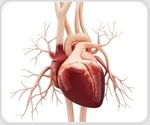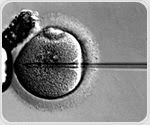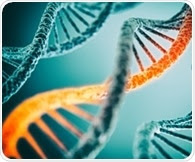| |  University of Sydney researchers are raising concerns over the need for informed decision making for genetic testing after a study published today finds patients at risk of inherited heart disease do not always understand test results or the impact results will have on their life. University of Sydney researchers are raising concerns over the need for informed decision making for genetic testing after a study published today finds patients at risk of inherited heart disease do not always understand test results or the impact results will have on their life. | |
|
| |  In what is believed to be the largest pancreatic cancer genome-wide association study to date, researchers at the Johns Hopkins Kimmel Cancer Center and the National Cancer Institute, and collaborators from over 80 other institutions worldwide discovered changes to five new regions in the human genome that may increase the risk of pancreatic cancer. In what is believed to be the largest pancreatic cancer genome-wide association study to date, researchers at the Johns Hopkins Kimmel Cancer Center and the National Cancer Institute, and collaborators from over 80 other institutions worldwide discovered changes to five new regions in the human genome that may increase the risk of pancreatic cancer. | |
|
| |  The U.S. Patent and Trademark Office has granted Benson Hill Biosystems Patent No. 9,896,696 related to CRISPR 3.0 Cms1 genome editing nucleases, further expanding the company's suite of genomics tools to accelerate crop performance improvements. The U.S. Patent and Trademark Office has granted Benson Hill Biosystems Patent No. 9,896,696 related to CRISPR 3.0 Cms1 genome editing nucleases, further expanding the company's suite of genomics tools to accelerate crop performance improvements. | |
|
| |  The genetic cause behind a strain of typhoid's resistance to five classes of antibiotics has been uncovered by scientists at the Wellcome Sanger Institute and their collaborators at Public Health England and Aga Khan University, Pakistan. The genetic cause behind a strain of typhoid's resistance to five classes of antibiotics has been uncovered by scientists at the Wellcome Sanger Institute and their collaborators at Public Health England and Aga Khan University, Pakistan. | |
|
| |  If first-degree relatives are affected by colorectal cancer, this indicates a person's own elevated risk of developing bowel cancer. The same holds true for people who have large numbers of genetic risk markers in their genome. If first-degree relatives are affected by colorectal cancer, this indicates a person's own elevated risk of developing bowel cancer. The same holds true for people who have large numbers of genetic risk markers in their genome. | |
|
| |  Babies with the rare, deadly genetic disorder Sandhoff disease begin to miss developmental milestones just months after birth. Lacking muscle tone, they never learn to sit up, develop heads too large to lift and eventually suffer uncontrollable seizures. There is no cure. Babies with the rare, deadly genetic disorder Sandhoff disease begin to miss developmental milestones just months after birth. Lacking muscle tone, they never learn to sit up, develop heads too large to lift and eventually suffer uncontrollable seizures. There is no cure. | |
|
| |  Autism is a spectrum of closely related symptoms involving behavioral, social and cognitive deficits. Early detection of autism in children is key to producing the best outcomes; however, searching for the genetic causes of autism is complicated by various symptoms found within the spectrum. Autism is a spectrum of closely related symptoms involving behavioral, social and cognitive deficits. Early detection of autism in children is key to producing the best outcomes; however, searching for the genetic causes of autism is complicated by various symptoms found within the spectrum. | |
|
| |  Several childhood cancer cell types show features of immature neural cells, and there is evidence suggesting that these tumors may arise from neural crest stem cells that underwent abnormal changes during embryonic development. Several childhood cancer cell types show features of immature neural cells, and there is evidence suggesting that these tumors may arise from neural crest stem cells that underwent abnormal changes during embryonic development. | |

































.png)












No hay comentarios:
Publicar un comentario